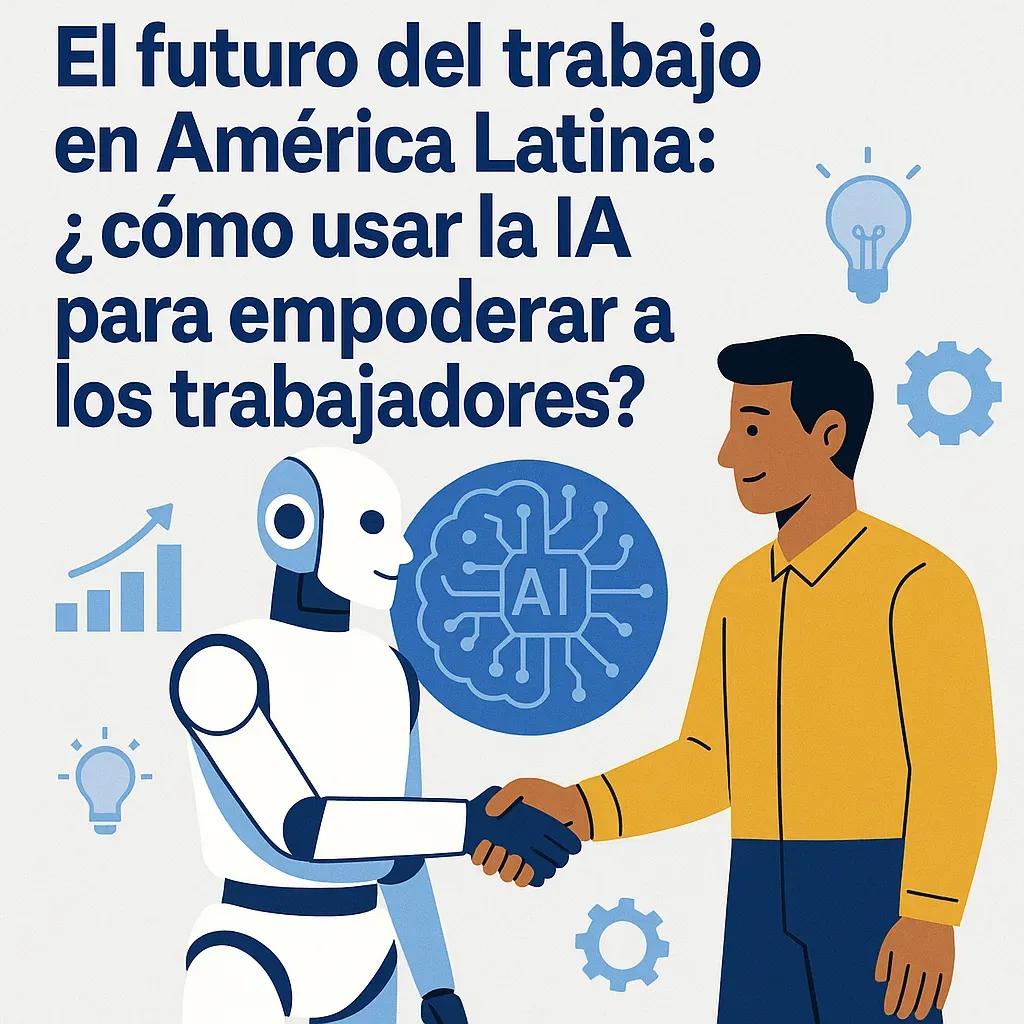The future of work in Latin America is marked by a recurring question: Will artificial intelligence (AI) leave us without jobs? This question, although valid in its initial moments of impact, is starting to feel outdated. The real challenge is how to adapt and leverage AI to transform the labor market in a way that benefits workers, entrepreneurs, businesses, and society as a whole. Instead of focusing on whether automation will eliminate jobs, we should ask ourselves the following question: How can we use AI to empower workers, improve their conditions, and open new opportunities?
AI: transformation, not replacement
In Latin America, the adoption of AI is advancing rapidly, but with its own challenges. According to the Inter-American Development Bank (IDB), 28% of jobs in the region are exposed to automation in the short term, a percentage that rises to 38% in five years and 44% in ten years. However, AI is not designed to replace humans but to change the nature of tasks. By automating repetitive and monotonous functions, workers are freed up to focus on higher value activities: creativity, complex decision-making, and strategic problem solving. Sectors such as customer service, digital marketing, health, and logistics are already incorporating AI tools to improve productivity and efficiency, optimizing time and costs, while opening new opportunities.
This is a fundamental aspect: automation does not mean the disappearance of jobs, but the transformation of tasks. According to the International Labour Organization (ILO), between 26% and 38% of jobs in Latin America and the Caribbean could be affected by generative AI, but of those, only 2% to 5% are at risk of total replacement. Between 8% and 14% of jobs, on the other hand, could improve their productivity thanks to AI. This data is key: AI will act as a complement, not a substitute, to workers in most cases.
Labor empowerment: an opportunity for emerging markets
The real challenge lies in how we prepare for this transformation. Latin America has a great opportunity to leverage AI. Emerging markets can use this technology to bridge the productivity gaps that have historically limited their growth. According to the World Bank, the adoption of AI in the region can not only increase productivity but also improve labor conditions by allowing the creation of more specialized jobs that are less vulnerable to automation.
Laburen.com is leading this transformation by creating a unique ecosystem of digital humans and AI agents, designed specifically for businesses in the region. Laburen.com focuses on integrating specific AI solutions, with models and databases tailored to local realities. This approach not only enhances employability but also allows companies to optimize their processes, increase their competitiveness, and access specialized talent without the technological barriers that hinder AI adoption in many sectors. Workers, for their part, gain access to new job opportunities in key areas such as algorithm management, digital ethics, and cybersecurity, which are essential for the future of work.
Collaboration between humans and artificial intelligence
It is essential that we change our mindset about AI and understand that it did not arrive to replace humans but to work alongside them. In fact, in many sectors, AI can optimize processes, but there will always be a human component that cannot be replaced. Instead of asking ourselves whether automation will eliminate jobs, we should think about how to collaborate with AI to create a labor market that is more efficient and less dependent on repetitive tasks.
Governments, businesses, and workers must collaborate to promote digital inclusion, invest in technological training, and adapt tools to the specific needs of the region. According to the ECLAC report, a quarter of labor activities in Latin America could be automated in the next decade, highlighting the magnitude of the change, but also the opportunity for adaptation so that the region can be at the forefront of technological innovation. This collaborative approach will not only improve productivity but will also ensure that all sectors of the population benefit from the technological revolution.

Comments